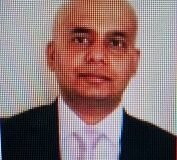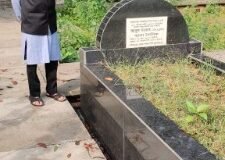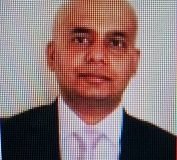A quick bail prematurely ending an earlier remand order and the release of a journalist may settle the dust for now. But there is an element of grave concern the Probir Sikdar whirlwind has brought to our attention and we should not overlook it.
The legal procedures followed in the ICT lawsuit against this journalist might go down in the records as the most disturbing case of human rights violation, the leading role this time around being played, if not by the state machineries, then rather ironically by law practitioners themselves.
We were appalled to witness the accused journalist being stripped of his legal rights in the courtroom by a very unbecoming stance the local lawyers took. On the first day at the court not a single lawyer was ready to represent Mr. Sikdar in his defence. This is an unprecedented phenomenon so far as legal rights are concerned.
What went wrong with the Faridpur lawyers?
According to newspaper reports, lawyers associated with the district courts declined to defend Mr. Sikdar due to a very strange and bizarre pledge inked in the framework of their organisation (the District Bar Association) which forbids them from standing by any defendant when a member of the Bar himself becomes the plaintiff.
Now what on earth could persuade someone engaged in the profession of delivering legal support to people – who feel powerless in the labyrinth of legal jargon – to create or, if I may, manufacture such a weird ban? I wish this was a single one-off case and didn’t have an echo in other District Bar Associations. If not, we are in a deep soup and we should be worried.
I fear I might sound very elementary if I take the trouble to remind the courtroom that the basic philosophy of our legal system hinges on is the very simple idea that an accused in no way should be considered guilty until and unless proven to be so by the court of law.
Even a guilty person holds the right to defend himself in court. This is a fundamental right and this right is enshrined in our constitution. Not infrequently do we find the state taking the onus of producing a defence layer whenever the accused falls short of affording it.
In the third chapter of our Constitution which deals exclusively with fundamental rights, Article 33 (1) declares:
“No person who is arrested shall be detained in custody without being informed, as soon as may be, of the grounds for such arrest, nor shall he be denied the right to consult and be defended by a legal practitioner of his choice.”
There can be no arrangement, be it a legal act or a ritual or a pledge, which can deny anyone of this right.
This is clearly stated in Article 26 (2) of the same Chapter, which says:
“The State shall not make any law inconsistent with any provisions of this Part, and any law so made shall, to the extent of such inconsistency, be void.”
Now the bar members cannot claim they had refused to take the case on their own discretion. This does not hold ground because of the absence of a single lawyer on the first day of bail hearing.
In a legal battle, if I am allowed to delve further into the realms of elementary legal custom, the lawyer defending a party in the court of law does not necessarily vouch for the innocence of his clients. He defends certain legal rights his clients are entitled to. It is his professional obligation to make sure that all the legal points are exhaustively explored and placed before the wisdom of the judge. It is a duty which can never be dubbed mundane.
The constitutional framework of Faridpur Bar Association, if there is any, clearly stands against the very foundation of the legal justice-delivery system. Forget about Probir Sikdar. Imagine a lawyer of the district bar filing a lawsuit against anyone concerning a property ownership dispute. The second party will not get a lawyer to defend him in the court.
Despite the outcry of the journalist community produced in the streets, very few I am sure, became surprised at all to experience the bullet-train speed with which the case in the first few days had been handled, given the high profile status of the persons – an ‘influential’ Cabinet Minister and a billionaire business tycoon – who might have felt themselves aggrieved, had they allowed the reaction-time before the pre-emptive step of a state lawyer who took the divine burden of becoming a plaintiff.
There can hardly be any room for discomfort if any amount of agility is pumped into our justice-delivery system which is often accused of lethargy and sluggishness. Furthermore when the reputation of important personalities is at stake, things no doubt should be speeded up.
In Mr. Sikdar’s case there was a disquieting enthusiasm made apparent by the detective branch of the Dhaka Metropolitan Police when they arrested the journalist from his Dhaka residence even before any formal complaint was submitted in Faridpur Court.
There may be prima facie libel case against Probir Sikdar for his Facebook status, but this doesn’t necessarily constitute a room for excuse for any harshness handed to him.
The judicial magistrate court has handed Probir Sikdar bail which the same court denied a day earlier. However, we could not heave a sigh of relief witnessing the same extraordinary quickness with which the clock, this time, is being winded backwards.
The proverbial process of ‘law takes its own course’ remains a far cry in high profile situations and it may not be very atypical in our judicial system. But we should also raise concerns about the case of the lawyers’ organised stance to win a walkover for their colleagues.
Shibabrata Barman is a journalist, fiction writer, and freelance writer.
 Weekly Bangla Mirror | Bangla Mirror, Bangladeshi news in UK, bangla mirror news
Weekly Bangla Mirror | Bangla Mirror, Bangladeshi news in UK, bangla mirror news






